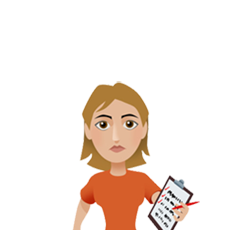Effective Parenting Tips for ADHD Children

4 Steps from Rudy Rodriguez
Many parents of ADHD children are eager to learn something — anything — that offers hope, both for themselves and their children. Unfortunately, most of the generic parent training models on the market do not factor in the realities of ADHD.
Parents want to do their best. Lacking a factual understanding of ADHD, they often rely upon how they were parented as a child. More often than not, this results in frustration and distress and not in effective parenting.
But it is possible to develop effective parenting tools and strategies for ADHD children. There are 4 basic steps involved:
- Understanding ADHD
- Recognizing the Parenting Challenges
- Developing a Context for Parenting
- Putting Systems into Place
Understanding ADHD
An evidenced-based understanding of ADHD is the place for parents to start, and a critical first step that is often missed. Beware. There is a good deal of misinformation, and even frightening stories, about ADHD and its treatment. Do yourself a favor. Stick to reliable sources of information and education. Here are a few resources to explore:
Article continues below...
Want to Motivate Kids?
Download a free tipsheet "The Parent's Guide to Motivating Your Complex Kid" to help your child find the motivation to do... anything and everything!
Recognizing Parenting Challenges
Most researchers agree that ADHD is a genetic condition. Thus, as we say in the south, ‘your kid’s got it honest.’ Realistically, the odds are that at least one of the parents of the ADHD child is also ADHD, and is most likely challenged with time, accountability, disorganization and poor attention. Yes, the apple doesn’t fall far from the tree. This single fact adds to the complexity of parenting children with ADHD. It’s important for parents to understand their own challenges, and get appropriate support and treatment.
On the other hand, sometimes a challenge arises when a non-ADHD parent is highly structured, orderly, on-time and reliable. If an organized parent sets expectations of the ADHD child that is far different than the ADHD parent, conflict arises. Ultimately, disagreement among the parents about parenting strategies, expectations and consequences makes for a confused, often frustrated and irritable child.
In this situation, a mutually agreed upon parenting plan, with true understanding and consequently realistic expectations of the child with ADHD, is critically important.
Developing a Context for Effective Parenting
Once you have equipped yourself with a reliable education and a sound understanding of ADHD, and you are clear on the parents’ relationship to the ADHD, you can then develop a context for parenting your ADHD child.
A clearly defined context is like a ‘recipe’ for parenting.
The context I recommend is:
-
- Structure & routine
- Effective skills and strategies
- Realistic expectations
- Recognize your child’s strengths & challenges
- Accountability
I like to say that, when we came into this life, those of us with ADHD missed the supply line titled “Structure & Routine.” Most of us lack an important internal sense of structure & routine. Worse yet, in many cases ADHD individuals actually attempt to avoid structure. We love the novelty of variety, and frequently run from structure that may be perceived as boring and tedious.<P.
The truth is that our lives generally suffer in many ways without structure. The same is true for children. Most children and adults will find external structure from school, work, families, sports and more.
Imposing some elements of structure lies at the foundation of effective ADHD parenting.
For instance, when coaching with parents and ADHD children, I generally begin by exploring both the bedtime and morning routines of the ADHD child. We might start with setting a ‘target’ bedtime, and creating pre-bedtime routines that will enable the child to succeed at being comfortably in bed at the designated ‘target’ bedtime.
I do the same with morning routines to enable the child to accomplish all of the important early morning tasks, and still be prepared and at the door ready to leave for school on-time (without last minute stresses and fussing).
These and other effective strategies replace chaos and frustrations with harmony and good feelings in the ADHD home.
Putting Systems into Place
The good news is that there are effective and loving ways to parent children with ADHD. I teach parents to use coaching skills when parenting their ADHD children.
For instance, all coaches learn to consider their client as capable, creative and complete. WOW! What a difference it makes for your parenting style when you think of your child, and interact with your child, as if s/he is a capable, creative and complete.
Of course, there are several other coaching principles that I teach. Ultimately, the coaching style is intended to create a new conversation, and a new relationship, between the parent and the ADHD child.
When a parent learns to use a ‘coach-approach’ to parenting, in addition to the context I supplied above, good things do happen. I see it all the time in my coaching practice. Give it a try, you and your child may find yourselves creating a new relationship, together.


